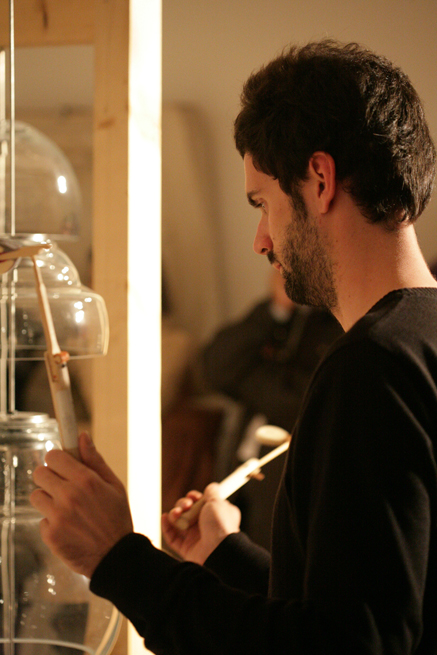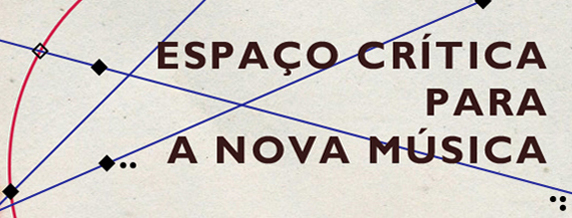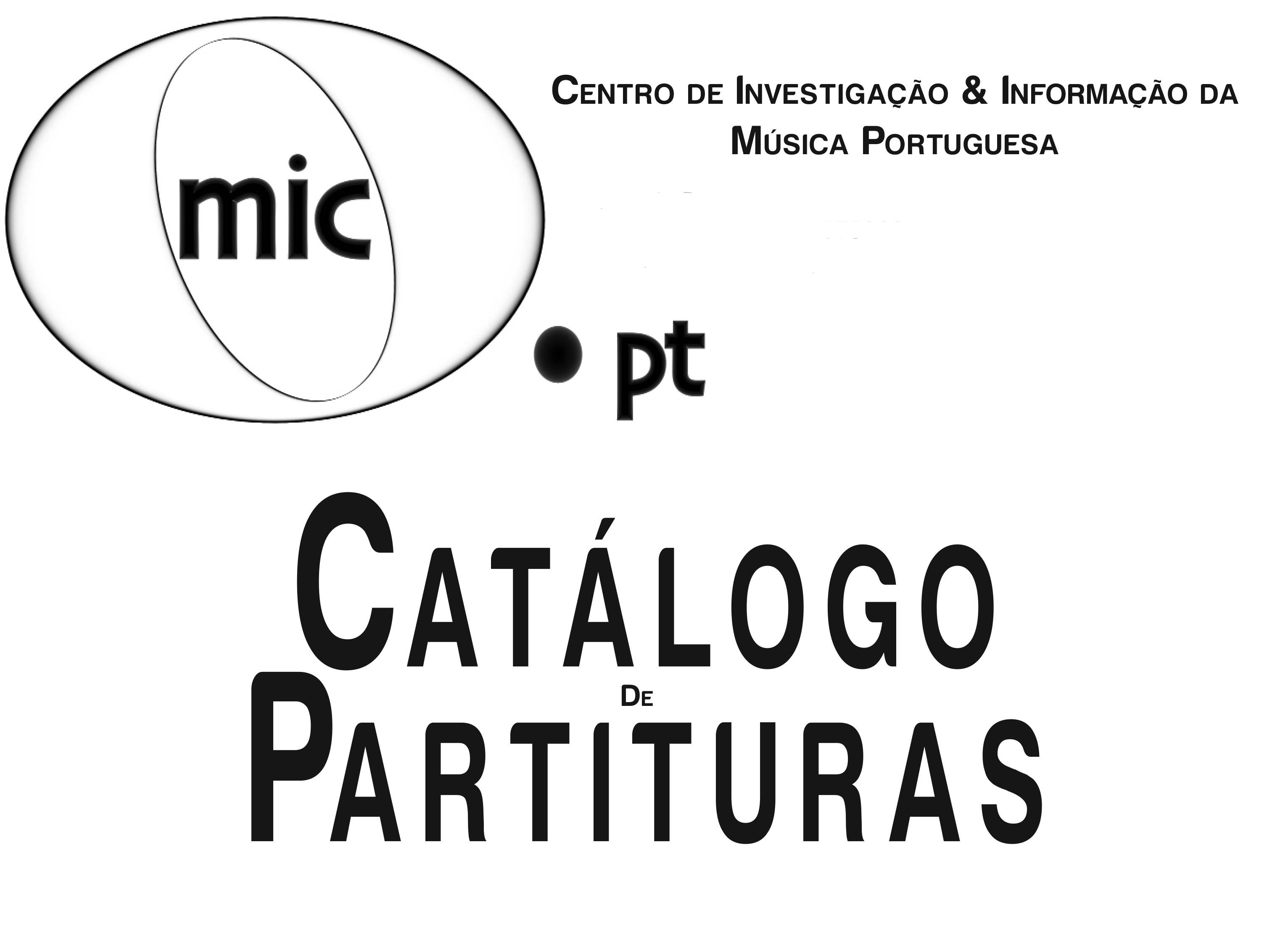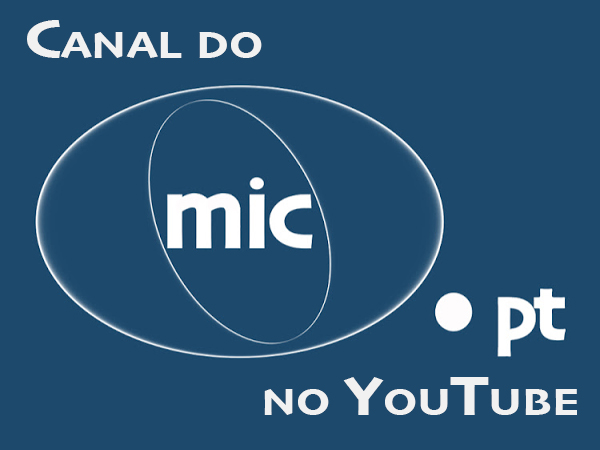Filipe Lopes In Focus in April

Filipe Lopes was born in 1981 in Porto. He is a composer with strong affinities with electronic music and new technologies. He has developed work in the field of electroacoustic music composition and multimedia installation, collaborating in the cinema, theater and video installation. In 2012, it was one of the winners of the prize Cri.D.A. organized by Guimarães - European Capital of Culture, and in 2013 wins the European prize ECPNM for electronic music works in real time with a piece which uses software developed by himself, Do desenho e do som. He was part of Factor E, the team of educators residents of the Educational Service of the Casa da Música, in Porto, where he was also curator of the project Digitópia. He holds a PhD in Digital Media from the University of Porto and UT Austin. In addition to the creative and pedagogical work that combines music and new technologies, he is a visiting professor at the University of Aveiro, researcher at INET-MD (Universidade Nova de Lisboa) and head of the educational project of the Jazz Orchestra of Matosinhos.
In the questionnaire that follows, Filipe Lopes responds to questions about his background and training, his ideas about aesthetics, language and musical practice, his relationship with new technologies and his thoughts on contemporary music.
Filipe Lopes is a composer who believes that "the role of the composer is to be curious, not just be a “maker” of music. An artist and researcher for whom writing is "a form of research, of emancipation and, above all, (...) a way of exercising freedom."
Questionnaire/ Interview
Part I - roots and education
How did your interest for music started and what are your musical roots?
I can not say when I started to be interested in music though in memory I have a sort of mini glockenspiel with some animals. I do not know why I have this in memory but it may have awakened my interest in music. Joining the band of Foz do Douro was the first more serious moment in the study of music. I had music theory classes and someone put me in my hands a trumpet (I wanted to learn guitar). Then I joined the Oscar da Silva Music School, in Porto, where I had a more formal musical education formal: trumpet lessons, musical training, analysis, composition, music history, among others. At the same time also I started playing in bands, especially in a funk band, and I think my interest is the result of these experiences and this music. I already heard a lot of jazz, Brazilian music (Caetano, Chico, Elis ...) but the funk of Maceo Parker, for example, excited me. When I had to make decisions about higher education, I knew I did not want to follow trumpet because I nurtured a love / hate relationship with the instrument. I wanted to be more free and I left the "wind" make the decision for me: then I went to Escola Superior de Educação do Porto to study Musical Education. The first contacts with contemporary classical music were made there, listening to music of Emmanuel Nunes. My musical roots are, it seems to me, a mixture of more or less academic influences (classics) and hearing music ranging from bossa nova to blues or funk, although I think that these roots have little influence on what I compose.
How do you started to compose?
The desire to learn how to compose grew during rehearsals of rock bands and funk, where each piece of music was often truly collaborative. A musician took a riff, a melody, an effect, a word or other raw materials, and quickly the rehearsals were made of music composition and performance. This exchange of ideas and the challenge of finding the “correct” harmony, rhythm and balance (i.e. groove) was very stimulating. So when I finished a degree in music education, and carrying there some good experiences of free creation, I wanted to pursue music composition at the ESMAE (Superior Music and Performing Arts School, in Porto). I liked the idea of composing because it allowed me to continue to play the guitar and trumpet, opened me doors to develop free creation and was a way to deepen my studies on new and contemporary musical contexts. All this led me to the musical composition and not, as in many cases, someone's music in particular or the ability to study with a particular composer.
What moments of your musical education do you consider to be the most important for you?
The first was the entry in ESMAE and the coincidence of having gone there during the reformulation of the composition course by Carlos Guedes. Then I think that when I went to the Sonology Institute was the moment when, finally, I decided to take myself seriously. Abandoning the music teaching in EB 2,3 (to earn a living) and going on Erasmus to Dartington had been important steps but with 27 years, the trip to Holland to study electronic music was very important. These were times where I developed academic ideas in depth, great technical learning and, as is often typical in these cases, a human transformation. Finally, going to the Casa da Música had a strong impact because I discovered new ways of thinking and working on music, and there I met Rui Penha and Paulo Rodrigues, friends for whom I have a profound admiration.
Part II - influences and aesthetics
What kind of past and present references does your musical practice incorporate?
If we are talking about acousmatic music, perhaps the French music that comes from the “musique concrète” tradition had the most tangible impact. If we speak of instrumental music, spectral music is to me very inspiring although I do not believe that we can notice it in my music. But it helped me to develop the exploration of sound as an acoustic phenomenon as it allowed me to do creative work grounded on listening. The use of algorithms to develop and create materials (ie algorithmic music) is perhaps the most obvious reference in my instrumental music. Finally, the influence of my composition teachers (Luís Tinoco, Fernando Lapa, Clarence Barlow, Joel Ryan, Paul Berg and Carlos Guedes) has an echo in what I produce, as it happens with past composers like Bach. Still, the fact that making music for different contexts (theater, acousmatic, film, instrumental...) does not favor the establishment of a matrix in my music production. Mostly, I try to be permeable to the context and absorb the ideas that I can develop later using the apropriate techniques. Fernando Lapa told me that the composition is a social activity and we should never forget that we write for people, not just for us. It is also true that although I think my way of composing is very phenomenological (i.e. intuitive), I do not like not knowing how to explain what I did and why I did it. To be able to explain my music is a way to mirror my thinking and a way of combining theory (more or less conventional ways of working the musical elements) with phenomenological attitudes, therefore, I also have a bit of the German tradition, in the sense of believing that musical composition should be a rational exercise. Note, however, that I do not think the music has to be justified. I never had to justify "my music" to anyone and not even care about that. However, I think that to explain my interests and my compositional work reflects some maturity. I do not know how to explain everything but the music is not to be fully explained, it would lose the fun!
Are there extramusical sources that influence your work in a meaningful way?
Usually not. If you are composing music for a film or a play, for example, it seems natural to me to let myself be contaminated by this universe and by the people with whom I work. In the case of films that are overtly narrative, it would be wrong not to let me be influenced. However, the process of composing music is very intimate and grounded in listening. I do not usually get inspiration from literature or images. Carlos Guedes, a great friend and professor, influenced my way of being in music. In one of his first classes, he told us that the composer of electronic music is both performer, composer and listener, and this idea for me is very important and influential (perhaps it was for this reason I developed strong ties with electroacoustic music). Being a performer, composer and listener is for me to enjoy the freedom to be able to decide, to work the raw sound on the spot and, above all, base my compositional work on listening.
What do you mean by "avant-garde" and, in your opinion, what can be regarded as avant-garde today?
The term "vanguard" has always been associated with who's in front or in front of something, and it's an interesting term in 20th century music history. For reasons of proximity to the subject, due to my doctoral thesis, I think one of the areas that seem "avant-garde" nowadays is the area that relates music and space, i.e., the musical composition that highlights (not just reveals) or which gives the space an importance comparable to the harmony, rhythm and timbre. Roger Reynolds, at the beginning of the 20th century spoke of the emancipation of harmony, then of rhythm and then of tone, predicting that the space would be the next element to emancipate itself in musical composition. Nowadays there is more and more literature about space and music (not just loose texts here and there), more research dedicated to the relationship between sound and space and, above all, more and more computational possibilities that allow a creative and musical work with space in real-time. I feel the coexistence of these phenomena has to do with "avant-garde". I believe that in the near future, especially with computer technologies increasingly accessible and cheap, we will see the emergence of increasingly strong interfaces that will create roots in musical practice. It would make no sense that the orchestras and ensembles would not incorporate all of these possibilities and remain closed or indifferent. The fingerboard continuum is not a cheap instrument but reveals the advantages of developing new interfaces, new expressive possibilities and above all an interesting work that can be done on timbre. It also seems clear that the programming will be very common in the coming years (projects like Scratch). Many children nowadays already know the rudiments of programming and therefore it seems natural that more and more instruments/ new interfaces, interesting and expressive, will be used.
Part III - language and musical practice
How would you characterize your musical language from a technical/ aesthetic point of view, in relation to history and your own experiences?
I find it very difficult to have high expectations about the music that will compose. Most likely, it will integrate electro-acoustic music. My production has been very diverse, influenced by the people I work with or the music I hear in this period of my life, so I do not think I have just one musical language. Nevertheless, I use a set of techniques/ methods that are idiomatic to certain schools, for example, techniques that have to do with the manipulation of sound (eg granular synthesis, additive synthesis, the sound object, capture and sound broadcasting in real time) or the use of algorithms (eg interpolation and variation of materials) but I rarely do things the same way and therefore I do not think that I have a specific language or my own style. Not to have a style, at least for now, ables me to "reinvent the wheel" and in that process to discover new things.
Is there any genre/ musical style for which you have preference?
I have no preferred style but there are styles of music that I do not care to listen. I hear a lot of music and try to hear many different things as there is always something to learn with the music and the thinking of other composers and musicians.
Regarding your creative practice, you develop music from an idea-embryo or after establishing a global structure?
It is rare that I start by defining the macro-form because it is the work on the raw sound that often leads me to form. Typically my initial compositional process is chaotic because it is a process of finding points of support with informed expectations. I'll play different instruments, experiment changing sound digitally and in many ways, I hear a lot of music, synthesize sounds, etc... When I find something that convinces me, then I get to work and develop this raw material and let that process flourish to build a macro-structure. On the other hand, since I finished my master's degree, I developed a software to generate scores in real time and have also been interested in the idea of meta-form, ie, establishing sequential footholds that have certain sound characteristics where the musician must pass and, above all, operate the passages between these support points stochastically.
What is your relationship with new technologies, and if so, how do they influence your music?
Computer technologies have an absolutely decisive role in my music. Incidentally, my musical and compositional practice has a close relationship with computers because my creative process is mostly based on the free exploration of sound and in that sense, the computer is an important tool. I try, however, to be cautious in the way I integrate the computer and the software in my music, because I know that the tools have an influence on the creative result.
What is the importance of space and timbre in your music?
Today the surrounding area, ie the combination of the soundscape and aural architecture of a given place, assume greater prominence in my music. The PhD I did dealt with the musical composition with the space. The timbre, obviously, never stops being important to me as it is, perhaps, one of the main foundations of acousmatic musical composition, like attentive listening. However, timbre has lately assumed a secondary role in comparison with space .
The experimentalism plays a significant role in your music?
I like to think that my music is not experimental. It can arise from experimentation with musical and sound material but at some point it ceases to be experimental because I take decisions and therefore do not think the music I do is experimental. I like to systematize ideas and I like to define points of solid support, even when the music has free moments and integrates the "here and now". I like to have control over the evolution of music and I like to use strategies to give the music a stochastic character. We could discuss what is “experimental”, however, for me, one of the aspects that defines it is the absence of form (ie the form is not known in advance) and in that sense, my music is not experimental.
What are the works that can be considered as a turning point for you?
BlackandDekker (2006), being the first work acousmatic I wrote and that earned me an award when it was still a composition student. Today I no longer identify myself with this work but I see it as a statement of my interest in electroacoustic composition. Grotox (2009), being the first experience of truly collaborative and eclectic musical composition. Not only it was a compositional challenge, but above all I learned about the power that music has on people. Breu (2010), because it was the first work I did with Jerónimo Rocha, another great friend, opening me the doors for music composition for film and image. The Trap (2011) because it inaugurated the work I have been developing with Mariana Tengner Barros, also representing the first serious experience of musical composition for dance/ movement. Do desenho e do som # 1 (2012), for clarinet and live electronics, opened a series of pieces where I have been working with graphic scores generated in real time. I have discovered many interesting things about interpretation and musical composition with these works and it has earned me a European award. Tombe le silence dans le son (2014) is an important acousmatic work because it aroused my curiosity for exploration of reverberation, particularly by interpolating reverberations, and the contrast between dry sound and reverberated sound. Finally, o Maquinista (2015) is an important work because it assured me that my doctoral research was on the right track and developed my interest in musical composition with the space.
Part IV - music in Portugal
What, in your opinion, distinguishes the Portuguese music on the international scene?
I do not think there is anything in particular. Our musical history, the Portuguese composers, is mainly made of absorbing influences from Italian and French music, among others, and in different periods it has assumed greater or less emphasis. Perhaps because we are essentially permeable people I do not feel that there is a "Portuguese music" and perhaps because of that we see (and hear) Portuguese composers adopting completely contrasting aesthetics. Fortunately we have many Portuguese composers around the world, creating and composing great music and maybe this is important: the fact that we have composers at the level of the best composers in the world.
In your view it is possible to identify some common aspect in the Portuguese music of today?
I do not think so. I notice some spots of interest in popular music, the traditional music and the integration of these new sounds in music, however, the musical composition is so varied that it seems to me difficult to find a common thread.
How do you define the role of a composer today?
I think the role of composer today is the same as it always was: to make music. But I think composers have an important role in perpetuating the musical composition activity as a form of research, of emancipation and, above all, as a way of exercising freedom. The role of the composer is to be curious, it is not just being a "maker" of music. It is the role of the composer to aspire to the sublime and not replicate models without criteria or just create music "that others enjoy." It is the role of the composer to be careful and active. Last time I entered the O'culto da Ajuda, in Lisbon, Miguel Azguime told me that "this is a free site, a place to make music freely," and this I think is the main role of the composer: create free music and to be curious. Another thought that comes to mind has to do with the expectations of the composition and composer. We know that there are great difficulties to have our music played regularly and sometimes Portuguese "free and curious" music is not supported in your society. Of course there are exceptions such as the Sonoscopia or Port-Jazz, associations that support and promote Portuguese music, but do not have the financial resources and international weight of large institutions. What should be the rule is often the exception. Socially, the role of a composer in Portugal is to continue to be vigilant and to criticize the little support that exists to our music, but we also have to find the ways to have our music played and abandon some romantic ideas of composition. In this sense, and obviously influenced by my practice/ experience, opening doors to music composition for film, theater and/ or dance, or even play a role of active performer, is also a way to be able to present my music in public. The composer nowadays must have the ability to adapt to different situations/ challenges, otherwise, as often happens, he will work for months in a piece to be premiered and never played.
Part V - present and future
What are your current and future projects?
I am interested in the exploitation of reverberation and the development of technologies to work in real time with the surrounding space. I am also interested in the development of new musical interfaces, especially the idea of creating instruments that are like living beings. I hope that the course as a teacher I started this year at the University of Aveiro, is the beginning of a long history of discoveries, renewal and evolution. Finally, to be coordinator LabJázzica - the educational service of the Jazz Orchestra of Matosinhos - is also cause for joy because I can work and research on issues involving music education, composition and new technologies.
Could you highlight one of your latest projects, present the context of its creation, and also its specific language and techniques?
A work that was premiered recently, Variações sobre o espaço (Variations on Space, 2016) for soprano saxophone and live electronics, played and commissioned by Henrique Portovedo, develops the interest I have in the interpolation of reverberations, as well as the counterpoint between dry sound and reverberated sound. In this piece, regarding the electroacoustic part, I use digital reverberation and different ways of modulating. With regard to the saxophone, I wrote gestures that "illuminate" the reverberation and highlight or attenuate (long notes vs short notes, forte vs piano). I will premiere a work for Sond'Ar-te Electric Ensemble, which will continue this research.
How do you see the future of art music?
I think the democratization of musical practice, especially conveyed by new technologies, needs to be balanced with projects that return (or recall) that music is a practice that requires much study, weight and especially not something that is gratuitous. The case of smartphones is paradigmatic as in a minute or two, we can do a song/ theme. It is something great to know that we carry in your pocket a very versatile musical instrument that allows everyone to play music. However, that could lead us to think that to create and play music is something naive. Also, I see with great enthusiasm a greater intersection of science with art and, finally, it seems to me that the musical performance by the internet will have interesting developments in the near future.
(March 2016)





